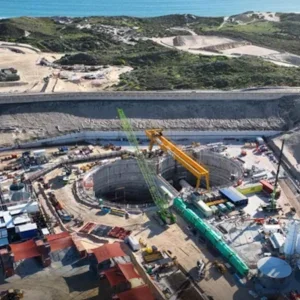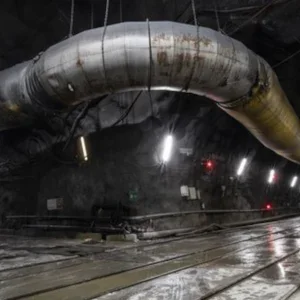The 8m diameter Robbins single shield TBM bored more than 18km through hard rock to form Turkey’s longest twin tunnels. It completed the first bore of 9.2km in 2020, and broke through in June to finish the second, 9.6km tunnel.
“We are very proud to complete this tunnel in difficult rock formations with our excellent team by utilising an extremely powerful and strong Robbins single shield TBM,” said Deniz Sahin, TBM chief for contractor Intekar Yapi Turizm Elektrik Insaat San ve Tic Ltd Sti.

Image Credit: Robbins
The geology for both tunnels included incredibly hard and abrasive metasandstone with quartz, with an average of 220MPa (31,900psi) UCS and a Cerchar abrasion value of 3.87. The rock is some of the hardest and most abrasive ever measured in Turkey.
After its first bore in the difficult ground, the TBM required inspection and repairs.
“The biggest repairs we undertook with Robbins’ field service technicians were the main bearing seal change and checking and repairing of the TBM before launching it on the twin tunnel,” said Sahin.
The machine began its second bore in February 2021, achieving a best monthly advance of 411m.
“During tunnelling we performed a normal maintenance programme as given in the TBM manual, and the machine had minimum downtime,” said Sahin.
The twin rail tunnels, for owner Turkish State Railways Directorate (TCDD), will provide an economic boost to a region recovering from two devastating earthquakes in February. The earthquakes had magnitudes of 7.8 and 7.6.
The project site is located very close to the intersection of two large active fault zones – the East Anatolian Fault and Dead Sea Fault. After the earthquakes the tunnels were found to have sustained only minor cracking in a few segments.
The new rail line will provide service between the towns of Bahçe and Nurdagi, and is part of the TCDD’s plan to overhaul the railway connection in south-east Turkey by providing a shorter, faster route in one of the country’s busiest railway corridors.







